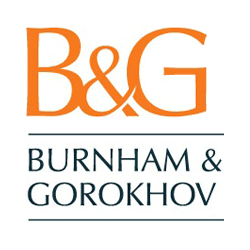Defending Attorneys Before the DC Board of Professional Responsibility: Understanding Its Role in Attorney Discipline Cases
The DC Board of Professional Responsibility plays a crucial role in regulating the ethical conduct of attorneys practicing in Washington, DC. When an attorney faces disciplinary action due to alleged ethical violations, the board investigates complaints, conducts hearings, and determines whether sanctions are warranted. Understanding the board’s functions and the disciplinary process is essential for attorneys seeking to defend their professional reputation and legal career.
The Purpose of the DC Board of Professional Responsibility
The DC Board of Professional Responsibility, operating under the supervision of the DC Court of Appeals, oversees the enforcement of the DC Rules of Professional Conduct. Its primary purpose is to ensure that attorneys adhere to high ethical standards while protecting the public, the profession, and the judicial system from misconduct.
The board evaluates a wide range of complaints, including but not limited to:
- Conflicts of interest.
- Mishandling of client funds.
- Breaches of confidentiality.
- Failure to communicate with clients.
The board also considers mitigating circumstances, such as an attorney’s history of ethical practice or evidence of rehabilitation, before issuing disciplinary recommendations.
The Disciplinary Process
The disciplinary process begins when a complaint is filed with the Office of Disciplinary Counsel. If the Disciplinary Counsel finds sufficient evidence, the case is referred to the DC Board of Professional Responsibility for further action. The process typically involves the following steps:
- Investigation: The Office of Disciplinary Counsel investigates the complaint, interviewing witnesses and reviewing relevant documents.
- Formal Charges: If misconduct appears likely, formal charges are filed, and the case proceeds to a hearing.
- Hearing Process: The accused attorney has the opportunity to present a defense before a Hearing Committee. This quasi-judicial proceeding includes testimony, evidence presentation, and arguments from both sides.
- Board Review: The Hearing Committee submits its findings and recommendations to the board, which reviews the case and may modify the suggested outcome.
- Final Decision: The DC Court of Appeals has the ultimate authority to impose disciplinary sanctions, ranging from reprimands to disbarment.
Throughout the process, the accused attorney has the right to legal representation, which is critical to protecting their professional license and reputation.
Common Outcomes of Disciplinary Cases
Depending on the severity of the alleged misconduct and the evidence presented, disciplinary outcomes can include:
- Dismissal of Charges: If the evidence does not support the allegations.
- Admonition or Reprimand: For minor infractions.
- Suspension: A temporary removal from practice, often contingent on meeting specified conditions.
- Disbarment: Permanent removal of the right to practice law in DC, reserved for the most serious violations.
Building a Strong Defense Before the Board
Attorneys facing disciplinary action should take proactive steps to build a robust defense, including:
- Preserving Evidence: Maintain thorough records of the actions and communications relevant to the complaint.
- Engaging Expert Representation: A skilled disciplinary defense attorney with experience before the DC Board of Professional Responsibility can navigate the process and advocate effectively.
- Presenting Mitigating Factors: Highlighting positive contributions to the legal profession or evidence of corrective actions can influence the board’s decision.
Defend Your License with Experienced Legal Representation
Facing disciplinary action before the DC Board of Professional Responsibility is a serious matter that requires expert legal support. Burnham & Gorokhov’s experienced disciplinary defense attorneys are well-versed in defending attorneys against bar complaints and ethical violations. Contact Burnham & Gorokhov today to protect your license, reputation, and career.

